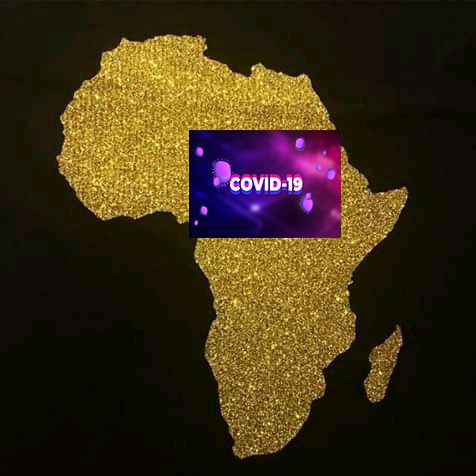Africa is striking a new kind of fear in the heart of the international community about its ability to cope with the coronavirus crisis, given that along with Oceania, it is one of the few continents least affected by the pandemic.
By Oumar Dembélé
While lovers were celebrating Valentine’s Day, the new coronavirus chose February 14 to enter the African continent, via Egypt.
Wreaking havoc in China where it first appeared last November, the epidemic took just days to reach Europe.
And after five months of its rapid spread to all corners of the global, the unusual question remains as to why a continent so fragile as Africa has yet seen so little of the pandemic.
This situation has led some specialists in geopolitics, such as the Moroccan Abdelmoughit Benmassoud Tredano, to weigh in on the issue.
Trenado told the African Press Agency that “today a new organization of the world is needed” with the added bonus of the replacement of Africa in international relations by the end of the health crisis.
In an address to the Senegalese nation on the eve of its 60th independence anniversary, President Macky Sall reminded the world that the pandemic that is shaking the globe sufficiently demonstrates the “fragility of all countries and their common vulnerabilities.”
Sall believes that “it was time to work together for the advent of a new world order that puts human beings and humanity at the heart of international relations”.
As of 8 April, the continent has recorded 11,400 cases for 572 deaths and over 1311 recoveries, according to figures from the African Union (AU).
Nevertheless, UN Secretary-General Antonio Guterres has hinted at his fear of “millions of deaths” if the international community does not make Africa “a priority.”
This scaremongering has earned him an outcry as Europe remains the worst affected region behind the United States, the new epicentre of the pandemic with more than 388,000 cases.
Clarifying his thoughts, the UN scribe warned that the risk is that “the disease will return from the South to the North. So it is in the interest of the countries of the North to make this massive investment in Africa.”
African leaders such as President Macky Sall have already pleaded for the cancellation of the continent’s debt to mitigate the impact of Covid-19.
His plea was supported by the Breton Wood institutions, “calling for action to alleviate the debt burden of IDA countries (or the poorest countries on the planet).”
Hopelessness of the major powers
however, the pandemic is only causing financial difficulties, because developed countries, especially the European powers, continue to demonstrate their “powerlessness” in the face of the health crisis.
“Italy, France and Spain are worried that within a week they will not have the equipment to protect medical staff or the drugs to treat patients, who would have thought of this? wondered Senegalese lawyer-cum politician Ndiaga Loum, based in Canada.
He was speaking at a forum entitled “Covid-19 and international relations: 6 provisional lessons.”
“There can be no greater demonstration of the impotence of a great power at the heart of the strongest and perhaps the most successful economic union in the world than a member country of the European Union calling for help for its overwhelmed medical corps from a country as poor as Cuba to face the coronavirus pandemic” he added.
While the means of response are considered weak in Africa, the United States has studied its worst-case scenario.
The coronavirus could cause “between 100.000 and 200.000” deaths there, Dr. Anthony Fauci, expert in infectious diseases, and an adviser to US president Donald Trump on the pandemic said on Sunday while calling for prudence.
On the African continent heads of state “are embarked on balancing acts,” crisis communication specialist Prof. Sahite Gaye told APA.
The Senegalese expert added that the latter “do not have the economic and medical means for the response (and) they do not want this crisis to turn into a social crisis with a psychosis at the base” even if they know that “the situation is critical,” quoting the Senegalese president.
Restrictions are currently limited to curfews in most countries.
But states such as South Africa and Morocco have decided to implement temporary lockdowns.
Responsibility and dynamism
In Benin, President Patrice Talon has used the “strategy of the oratorical question, also known as hypobolism, which consists in impressing on the Beninese the impossibility of a total lockdown. It is also a strategy to mitigate its responsibility,” Prof. Gaye stressed.
Africans such as the sociologist Ibrahima Diop insist that this pandemic is a “bacteriological war,” a consequence of the “trade war” between the United States and China.
But others like journalist Adama Gaye find that “the time is right” for the continent to finally take off.
Gaye said “the time demands it” and this work falls on the laps of the African elites.
A country like Senegal reached 244 Covid-19 cases as on Wednesday.
However, its health system has managed to cure 103 patients.
In addition, the Pasteur Institute in Dakar, one of the continent’s most powerful biomedical laboratories, is working on a vaccine to overcome the coronavirus.
“The Pasteur Institute in Dakar is the only vaccine producer in Africa that is prequalified by the WHO (World Health Organization). This puts us in a position that today we are working with the different initiatives for the Covid-19 vaccine,” said its administrator Dr. Amadou Alpha Sall.
ODL/Dng/lb/as/APA


